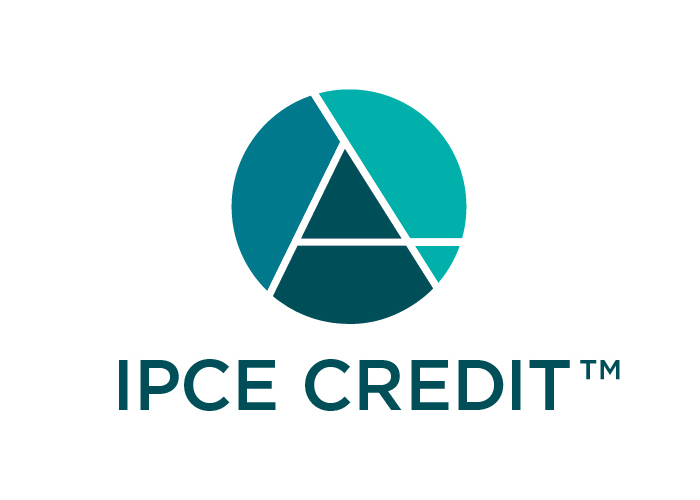This program provides awareness for practitioners to correctly diagnose Paroxysmal Nocturnal Hematuria (PNH) due to overlap with other diseases, which often causes a delay in diagnosis. The approval of the first complement inhibitor changed the outlook for people with PNH dramatically, yet today, two-thirds to 80% of patients on anti-C5 therapy still suffer from anemia. Approximately a fourth of patients continue to experience breakthrough hemolysis, a loss of disease control that greatly increases the risk of thrombosis. New treatments are tackling those challenges with different approaches to complement inhibition. This program provides an awareness of managing treatment-related adverse events associated with complement inhibitors. In addition, this program focuses on how healthcare providers can best serve their patients by increasing their confidence in knowing how to discern the differences in new therapeutics available and select the optimal first line regimen best suited for their patients with PNH to increase their quality of life.
What Are the Data Supporting First Line C3 Inhibitor Treatment of PNH?
Be part of the knowledge.™Reconsidering First Line PNH Treatment: Is There a Standard of Care?
What Are the Data Supporting First Line C3 Inhibitor Treatment of PNH?
Overview
Target Audience
This activity has been designed to meet the educational needs of the interprofessional team, including hematologists/oncologists and hematologist nurses involved in the management of patients with paroxysmal nocturnal hematuria (PNH).
Learning Objectives
After participating in this educational activity, participants should be better able to:
- Explain the advantages and limitations of each FDA-approved complement inhibitor in the first line treatment of PNH
- Evaluate recent practice-changing data in first line complement inhibitor treatment of PNH
- Recognize and manage treatment-related adverse events associated with the use of complement inhibitors
Accreditation and Credit Designation Statements
 In support of improving patient care, this activity has been planned and implemented by Global Learning Collaborative (GLC) and Total CME, LLC. GLC is jointly accredited by the American Council for Continuing Medical Education (ACCME), the Accreditation Council for Pharmacy Education (ACPE), and the American Nurses Credentialing Center (ANCC) to provide continuing education for the healthcare team.
In support of improving patient care, this activity has been planned and implemented by Global Learning Collaborative (GLC) and Total CME, LLC. GLC is jointly accredited by the American Council for Continuing Medical Education (ACCME), the Accreditation Council for Pharmacy Education (ACPE), and the American Nurses Credentialing Center (ANCC) to provide continuing education for the healthcare team.This activity was planned by and for the healthcare team, and learners will receive 0.75 Interprofessional Continuing Education (IPCE) credit for learning and change.
Faculty Disclosure of Commercial Relationships
Disclosure Policy
In accordance with the ACCME Standards for Integrity and Independence, Global Learning Collaborative (GLC) requires that individuals in a position to control the content of an educational activity disclose all relevant financial relationships with any ineligible company. GLC mitigates all conflicts of interest to ensure independence, objectivity, balance, and scientific rigor in all educational programs.
The following faculty have disclosed:
Catherine Broome, MD, faculty for this educational event, is a contracted researcher for Alexion, Alpine, Argenx, Electra, Novartis, and Sanofi; and receives consulting fees from Alexion, Alpine, Argenx, Novartis, and Sanofi.
Carlos M. de Castro, MD, faculty for this educational event, receives consulting fees from Alexion, Apellis, Novartis, BioCryst, Omeros Pharmaceuticals, and Regeneron.Planners and Managers Disclosure List
The following planners/reviewers/managers have disclosed:
Rosanne Strauss, Pharm D, MBA, planner for this educational event, has no relevant financial relationships with ineligible companies.
Megan Reimann, PharmD, BCOP, planner for this educational event, has no relevant financial relationships with ineligible companies.
William Mencia, MD, FACEHP, CHCP, reviewer for this educational event, has no relevant financial relationships with ineligible companies.
Total CME, LLC., planners, and managers have no relevant commercial relationships to disclose.
All the relevant financial relationships for these individuals have been mitigated.Disclaimer
The views and opinions expressed in this educational activity are those of the faculty and do not necessarily represent the views of GLC and Total CME, LLC. This presentation is not intended to define an exclusive course of patient management; the participant should use their clinical judgment, knowledge, experience, and diagnostic skills in applying or adopting for professional use any of the information provided herein. Any procedures, medications, or other courses of diagnosis or treatment discussed or suggested in this activity should not be used by clinicians without evaluation of their patient's conditions and possible contraindications or dangers in use, review of any applicable manufacturer’s product information, and comparison with recommendations of other authorities. Links to other sites may be provided as additional sources of information. Once you elect to link to a site outside of MedEd On The Go, you are subject to the terms and conditions of use, including copyright and licensing restrictions, of that site.
Reproduction Prohibited
Reproduction of this material is not permitted without written permission from the copyright owner.Provider(s)/Educational Partner(s)
Jointly provided by Global Learning Collaborative (GLC) and Total CME, LLC.
Commercial Support
This activity is supported by an independent educational grant from Apellis Pharmaceuticals, Inc.
Instructions for Completion
During the period 9/22/2023 through 9/22/2024, registered participants wishing to receive continuing education credit for this activity must follow these steps:
1. Read the learning objectives and faculty disclosures.
2. Answer a pre-program question.
3. View the program.
4. Complete the post-test with a score of 100%.
5. Complete activity evaluation.
6. Apply for credit and either bank your credits or print your certificate.
For Pharmacists: Upon successfully completing the post-test with a score of 100% and the activity evaluation form, transcript information will be sent to the NABP CPE Monitor Service. This may require you to add or update the e-profile ID/date of birth information saved in your account.System Requirements
- Supported Browsers (2 most recent versions):
- Google Chrome for Windows, Mac OS, iOS, and Android
- Apple Safari for Mac OS and iOS
- Mozilla Firefox for Windows, Mac OS, iOS, and Android
- Microsoft Edge for Windows
- Recommended Internet Speed: 5Mbps+
Publication Dates
Release Date:
Expiration Date:


Facebook Comments